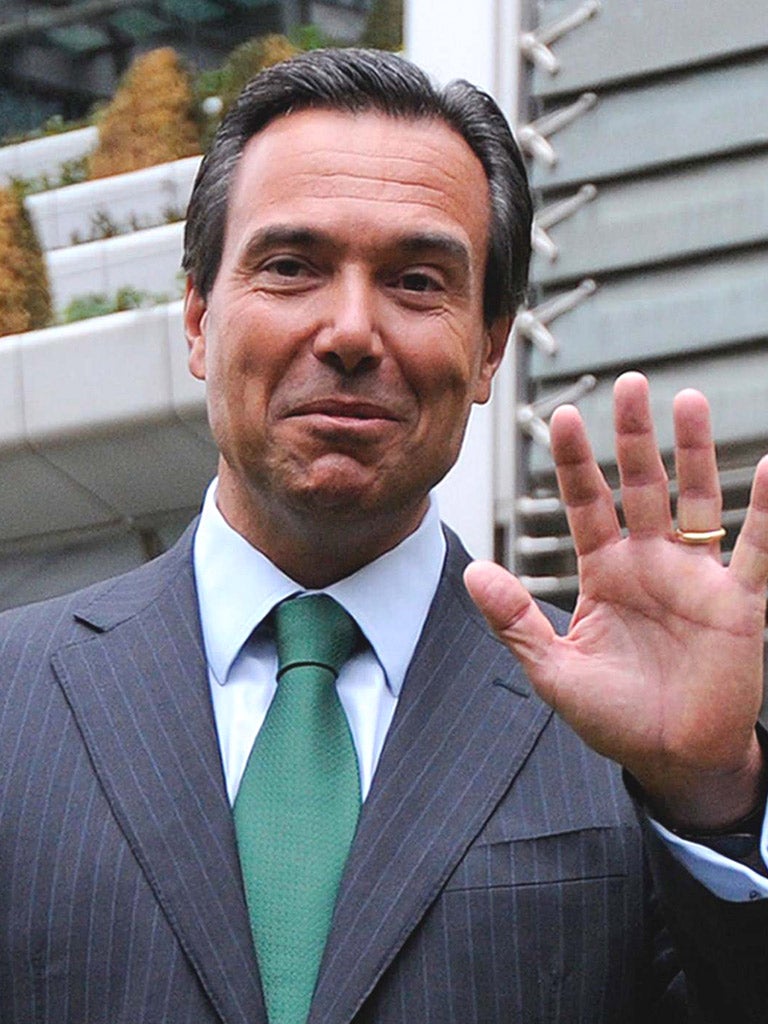Lloyds doubles profits – but how much is too much?
The business run by Antonio Horta-Osorio has enormous power in the retail banking market

If Lloyds Banking Group is able to double profits in the midst of “challenging times”, just how much filthy lucre would it be rolling in if the outlook were rosy?
“Lloyds investors are waking up to a (pretty glorious) reality,” analyst Ian Gordon opined in a note entitled “Living the dream” as the bank revealed that pre-tax profits hit £1.3bn in the first three months of the year, twice what it made at the start of 2016.
He’s not wrong. The challenges the bank pointed to are real. Bank of England base rates remain at an all-time low, which makes it tough for banks to make money, and the UK’s economic outlook is uncertain at best with Brexit looming.
However, this retail banking behemoth looks like it will be able cope with the worst Britain’s inclement economic weather can throw at it, and the shares, which ticked up by around 3 per cent in early trading, might soon come to look like a steal. Mr Gordon certainly thinks so, and he isn’t alone.
But while the investment community might have cause to celebrate the bank’s bravura performance, for the rest of us it raises some questions.
Lloyds enjoys a position of rare power in the retail banking market. As I said earlier, it should be difficult for banks to make money in a low interest rate environment, but it’s perhaps a function of that power that CEO Antonio Horta-Osorio and his team don’t seem to be having too much trouble.
Net interest margins – the difference between what a bank pays depositors and chargers borrowers – tend to get squeezed when interest rates are low. Lloyds' came in at 2.8 per cent, which was a tick above expectations.
Competition laws were overridden to allow the bank to takeover – or rather rescue – HBOS during the financial crisis. Lloyds then had to accept a huge Government bailout to keep the show on the road as the price of that deal.
With everything it had to cope with in the long aftermath, including heavy fines imposed by regulators for its part in the scandals that have dogged the entire banking sector, and the challenge of spinning off TSB to satisfy EU demands for redress as a result of the state aid Lloyds has received, it has taken time for the business to truly emerge into the sunlight.
However, if he hasn’t already reached for his shades, Mr Horta-Osorio will soon be looking for them. His bonus will facilitate the purchase of a very expensive new pair if he wants, a shop full of them in fact. No cheapies from Sports Direct for him.
All this raises a question: how successful is too successful? More to the point, how powerful is too powerful, for the health of the economy and of the consumers within it.
Perhaps it's time for us to be asking that question, or more to the point, perhaps it's time for the authorities to be asking that question.
They may feel everything is fine and and dandy. They may be able to produce figures to prove that. There are other banks out there, after all, and some of the new, or newish, challengers that emerged from out of the financial crisis seem to be doing quite well.
That doesn't change the fact that they should at least take a look.
With the Government set to dispose of the last few shares owned by the taxpayer as a consequence of the aforementioned bailout, it is also time to ask another pertinent question. Was the Treasury too quick too sell? Has it really achieved value for the taxpayer’s stake? That should be one for a new Treasury Committee to get its teeth into after the election.
Join our commenting forum
Join thought-provoking conversations, follow other Independent readers and see their replies
Comments
Bookmark popover
Removed from bookmarks